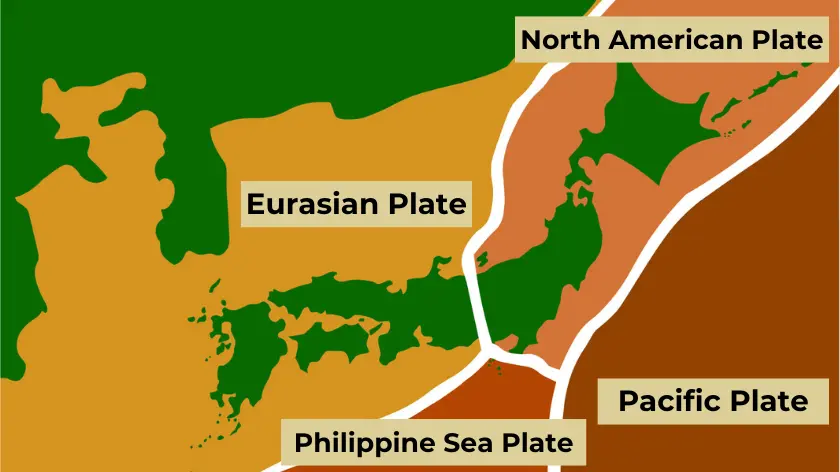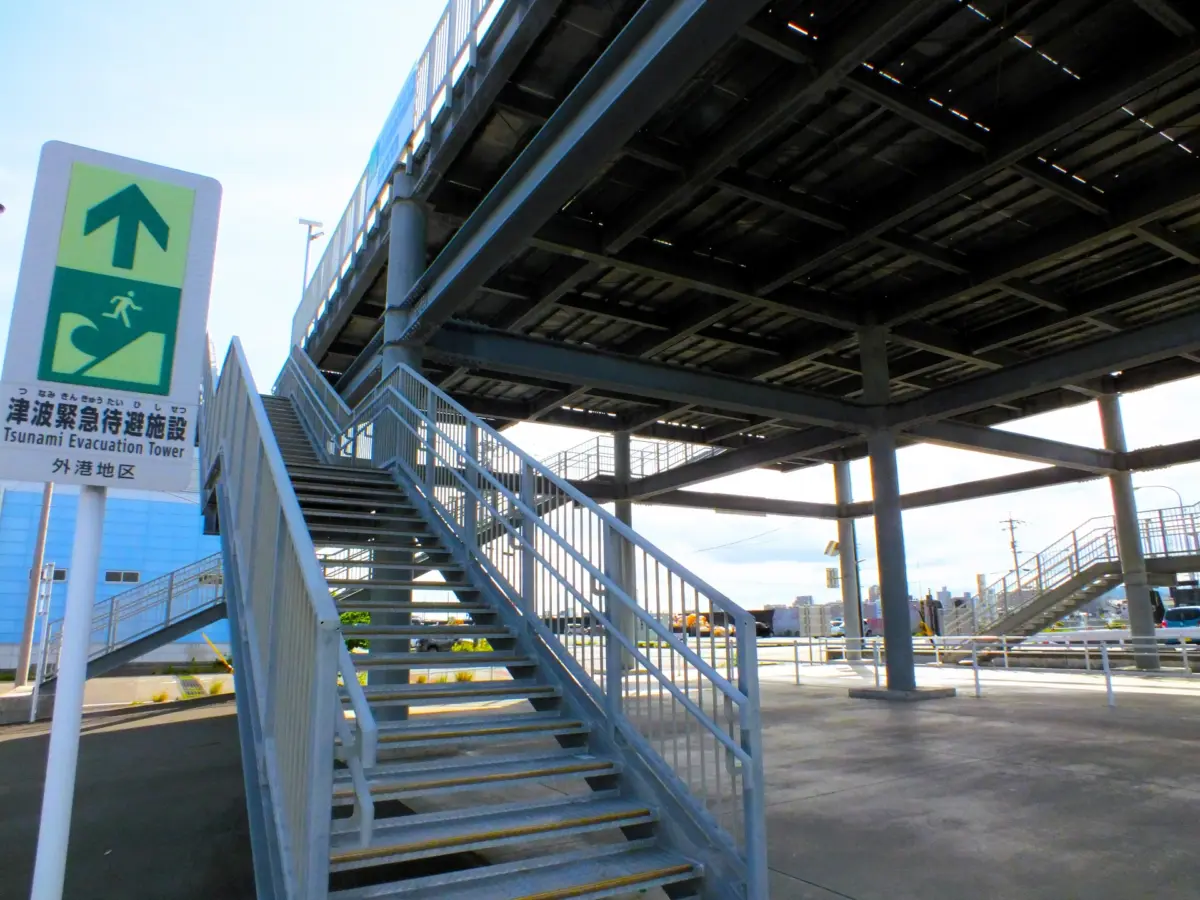Japan is one of the most earthquake-prone countries in the world due to its location along the Pacific Ring of Fire.
While these natural phenomena can be alarming, understanding earthquakes and knowing how to respond can help keep you safe during your visit.
Why Do Earthquakes Happen in Japan?

Earthquakes occur in Japan because it sits at the intersection of four tectonic plates: the Pacific Plate, the Philippine Sea Plate, the Eurasian Plate, and the North American Plate.
The movement of these plates causes frequent seismic activity, ranging from small, barely noticeable tremors to major quakes.
How Are Earthquakes Measured?
- Magnitude: Measures the size of the earthquake at its source.
Magnitude Scale and Effects
| Less than 3.0 | Minor | Usually not felt, but detectable by seismographs. |
| 3.0–3.9 | Small | Often felt, but rarely causes damage. |
| 4.0–4.9 | Light | Noticeable shaking of indoor items; minimal damage. |
| 5.0–5.9 | Moderate | Can cause damage to poorly constructed buildings; felt by most people. |
| 6.0–6.9 | Strong | Can cause serious damage in areas near the epicenter. |
| 7.0–7.9 | Major | Causes significant damage to buildings and infrastructure. |
| 8.0 or more | Great | Can cause severe destruction over a large area; possible tsunami generation. |
What to Do During an Earthquake
- If You’re Indoors:
- Take cover under a sturdy table or desk.
- Stay away from windows, heavy furniture, or anything that could fall.
- If You’re Outdoors:
- Move to an open area away from buildings, power lines, or trees.
- Avoid cliffs or slopes that could collapse.
- If You’re Near the Coast:
- Be aware of tsunami risks. After a strong earthquake, move to higher ground immediately and listen for evacuation alerts.
Earthquake Preparedness in Japan
- Emergency Alerts:
Japan has an advanced early warning system that sends alerts to smartphones and public broadcasts seconds before shaking begins.
Japan’s TV broadcasts include emergency earthquake alerts before the shaking starts. When you see this alert, take cover under a table or find a safe spot to prepare for the earthquake.
There will be an announcement saying, ”This is an emergency earthquake alert. Please be cautious of strong shaking”
Tsunami

After an earthquake, always be aware of the possibility of a tsunami, especially if you are near the coast. Tsunamis can arrive quickly, so immediate action is crucial.
- Move to Higher Ground: Evacuate to a designated tsunami evacuation area or a hill if one is nearby.
- If No Hill is Nearby: Head to a sturdy, reinforced concrete building and move to the third floor or higher.
Stay alert for warnings and follow evacuation instructions from local authorities. Acting quickly can save lives.
Sendai International Airport
Famous Earthquakes in Japan
- Great Hanshin Earthquake (1995, Hyogo and Osaka):
A magnitude 6.9 earthquake struck Kobe and nearby areas, including parts of Osaka, causing significant damage and loss of life. - Great East Japan Earthquake (2011, Tohoku Region):
A magnitude 9.0 earthquake off the coast of Tohoku caused a devastating tsunami. - Kumamoto Earthquakes (2016, Kumamoto):
A series of earthquakes, including a magnitude 6.5 foreshock and a magnitude 7.3 main shock, hit Kumamoto Prefecture, resulting in significant casualties and infrastructure damage. - Ishikawa Noto Earthquake (2024, Ishikawa):
A magnitude 7.6 earthquake struck the Noto region in Ishikawa Prefecture, causing severe shaking and damage.
Staying Safe as a Tourist
While earthquakes are common, Japan is well-prepared with strict building codes, advanced warning systems, and well-trained emergency services. Many hotels, ryokan, and public facilities have earthquake response manuals in place.
Japanese people are trained from a young age in schools and kindergartens to handle earthquakes calmly.
During an earthquake, follow the instructions of hotel staff or police to stay safe.
For more information, visit the Japan Meteorological Agency’s earthquake page.
Key Takeaway
Understanding earthquakes and being prepared are essential for anyone visiting or living in Japan.
Stay alert, follow local advice, and remember that Japan’s safety measures are among the best in the world.
Useful Apps and Websites for Disaster Preparedness
| Service | Description | Links |
|---|---|---|
| Safety Tips | Provides emergency alerts and disaster info in multiple languages, including evacuation advice. | Apple App / Android App |
| NHK World Japan | Live news and emergency updates in English and other languages during disasters. | NHK World Japan |
| Japan Meteorological Agency (JMA) | Official weather forecasts, earthquake, and tsunami warnings in English. | JMA Website |

